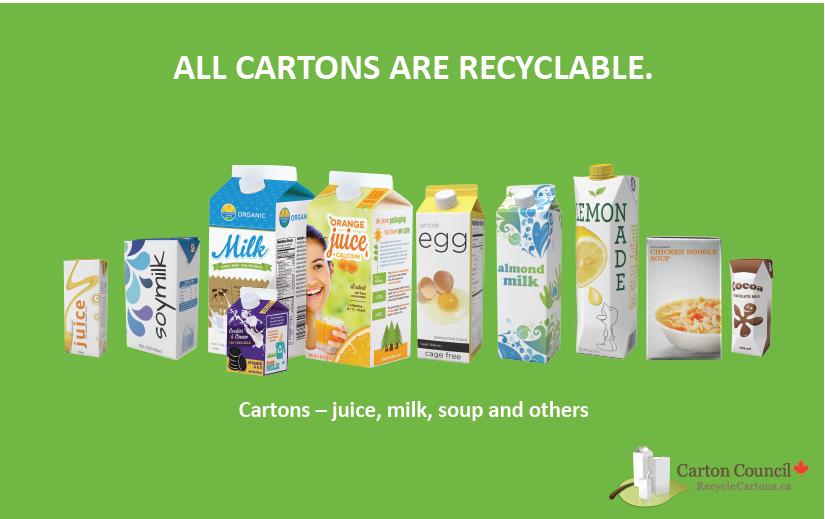
Recycle your breakfast
By Isabelle Faucher
Packaging SustainabilityResearch shows more food and beverage cartons could be recycled

By Isabelle Faucher
What do recycling and breakfast, the most important meal of the day, have in common? I would like to think that the former is almost as natural to us as the latter. Indeed, recycling has become second nature to the majority of Canadians, in fact, few of us would think twice about placing the empty remnants of our favourite breakfast items – egg cartons, cereal boxes, the morning paper, milk and juice cartons – in the recycling bin.
Doing so prolongs these items’ useful life and contributes to greener breakfasts. Milk, soy milk and juice cartons’ main component – fibre – is separated from its non-fibre components (plastic and for shelf-stable cartons, plastic and aluminum) during the recycling process. The fibre is used to make new products such as tissue and towelling, while the plastic and aluminum can be used to make products such as pipes, pallets and roof tiles. These Cartons can also be recycled in their entirety to make sustainable building materials such as wallboard and roof covers. It might be strange for consumers to imagine that the carton sitting on the breakfast table in front of them at 7 a.m. could very well end up as part of the roof over their head one day!

In addition to their recyclability, food and beverage cartons have many other positive environmental attributes. They are light-weight, compact, and, according to research conducted this summer from 2,000 consumers in Quebec and Ontario, have a low carbon footprint. Carpooling or taking the bus to work in the morning aren’t the only ways to achieve a sustainable lifestyle – breakfast choices are part of it too.
Have breakfast, get ready and recycle
Good progress towards growing carton recycling has been achieved since the creation of the Carton Council Canada (CCC) in 2010. However, there is still room to boost carton recycling rates. For example, in Ontario, while 98 per cent of households are able to recycle their used food and beverage cartons via the Blue Box system, Stewardship Ontario states that the carton recycling rate stands at 43.3 per cent.
To better understand Canadians’ carton recycling behaviour, the CCC conducted consumer research which collected a number of data points on Canadian’s recycling awareness and attitudes towards these common types of breakfast packaging.
We were able to determine that while 90 per cent of respondents say milk and juice cartons are recyclable, only 78 per cent admit to consistently recycling these items. The most commonly offered reason why they did not recycle cartons more regularly is that they simply forget that these items can be recycled too.
According to respondents, what would make them more likely to recycle food and beverage cartons more often is “easy to identify recycling information so you know an item is recyclable.” Furthermore, we discovered that 70 per cent of respondents would turn to product packaging first to learn about the recyclability of food and beverage cartons.
This information will support the Carton Council of Canada’s communication efforts to grow carton recycling in the coming years, and could motivate brands to adjust their communications efforts as well, so that recycling food and beverage cartons becomes as natural to Canadians as having breakfast in the morning.
Isabelle Faucher is managing director for the Carton Council Canada. Contact her at ifaucher@recyclecartons.ca
Print this page